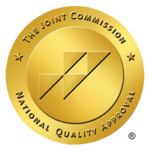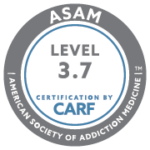What Is Family Support?
Family support is a self-explanatory term; it’s the support your family provides to you during your recovery.
How Can Support Be Beneficial During Recovery?
Families need to play an active role before, during, and after your recovery. Why is this so important? The support you receive throughout the process is key to your sobriety later on.
When you think about drug addiction or alcohol abuse, you realize that it’s an internalized problem. You may separate yourself from your family and focus on only your own needs.
The truth is, you need your friends and family, and they need you. While you don’t want to have a codependent relationship, it’s true that you should have a solid relationship in which you’re not scared to talk about your problems or ask for help moving forward and maintaining your sobriety.
Why Is It Important to Have Good Relationships With Your Family?
To start with, reconnecting with your family is vital, as long as that can be a healthy relationship. Reinforcing the strength of your connection to your family can be a huge boost to your self-esteem. We often want to impress our family and be accepted; that’s exactly what can happen over time when a family is involved in your recovery.
When you come home from drug rehab, you want your family to be supportive. Sobriety clinics that focus on family support will help your family learn to be supportive and to reinforce your good habits, so they can be an encouraging pillar of support.
It’s also important to reconnect with your family to learn to treat them with the love and respect they deserve. Many times, it’s family members who suffer most when a loved one is addicted to drugs or alcohol. They may not know what to do or how to help. Those who abused substances may feel guilty or shameful after returning from a detoxification and rehabilitation clinic, but that doesn’t have to be the way it is forever. Support means that the family supports and provides you with respect and dignity. In return, you learn to treat your loved ones with the dignity and respect they deserve as well. As you learn to interact in this healthy manner, both you and the ones you love will begin to heal.

Your family should know that now is the time to show love and affection. As someone coming out of recovery, you may not be sure about your place in life. You could be anxious about the way you treated people in the past, too. Your family can show the most support by welcoming you without criticism. Being affectionate and loving, supportive and guiding, is the key to a healthy recovery. You’ve put in time and effort to get sober, and your family does need to respect that. Love is a powerful tool, and knowing that you have the love of your family can help you recover from your mental and emotional wounds.
Remember, you must be sensitive as you work back into family life. You can’t expect everyone to be 100 percent supportive from the start, and you can’t expect your life to go back to normal. Things won’t automatically be the same as in the past. That means you’re going to have to be sensitive to the wants and needs of your loved ones. If that means adhering to a schedule designed to make sure you’re home with them in the evenings, remember that they’re looking out for your best interests and want you to succeed. Accept these changes and work toward a balance in the home. You can work toward a life of trust and support. You can learn to communicate your needs with your family in a healthy way, to prioritize what you need to get done on a routine that is created in the home, and improve your decision-making techniques as you work with loved ones to overcome your personal struggles.
While this could be a challenge and even frustrating to deal with, remember that schedules and routines will help you get back into your daily life while earning the trust of your family. Coming home doesn’t automatically entitle you to the life you had before addiction. Be understanding of the demands that your family puts on you, and be patient. Time heals all wounds, and by being understanding, you’re encouraging your family to do the same.
How Can You Learn More About Support Systems and Their Implications for Your Recovery?
When you’re headed home from recovery, you need to know that you have the support you need. You can visit us online at www.firststepsrecovery.com to find out more about how your family can support you, 12-step groups, and other aftercare programs. Or, call our helpful specialists at 1-844- 244-7837 to find out more about the programs near you.








